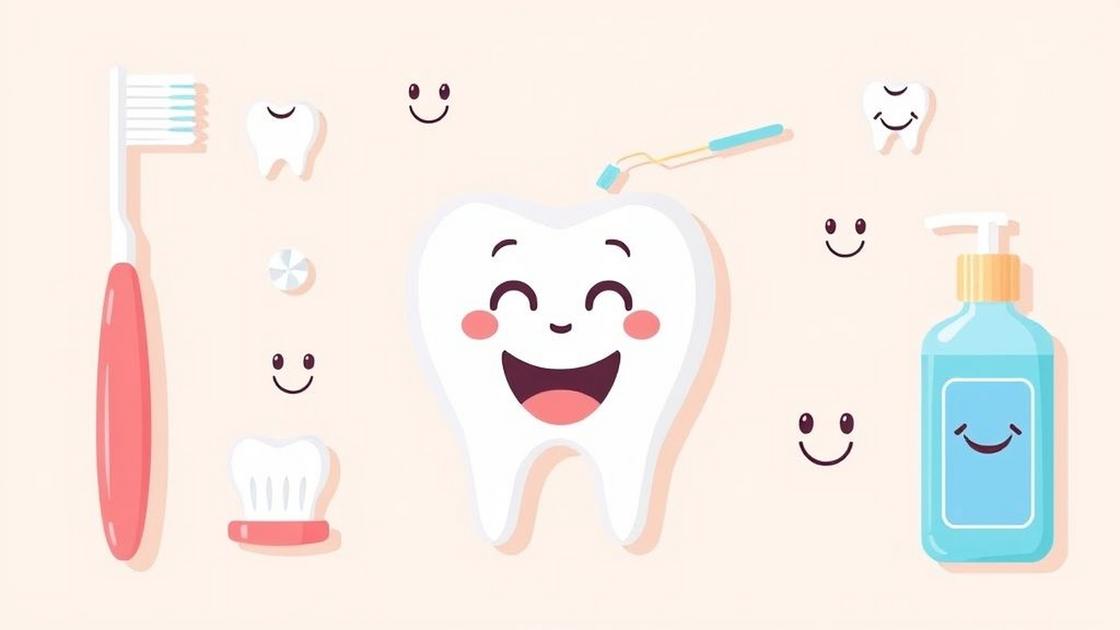Are you tired of wincing in pain whenever you sip on a hot drink? If you struggle with tooth sensitivity, you’re not alone. Many women over 30 experience this frustrating condition, often feeling overwhelmed by dental discomfort. But fear not! In this guide, we will discuss simple and effective natural remedies to alleviate your symptoms and bring back the joy of eating and drinking without worry.
Understanding Tooth Sensitivity: Causes and Symptoms
Tooth sensitivity can be a frustrating and uncomfortable condition. It occurs when the enamel, the hard outer surface of a tooth, wears down, exposing the softer inner layer called dentin. This exposure can lead to pain or discomfort during activities such as eating, drinking, or even breathing cold air.
Common Causes of Tooth Sensitivity:
- Enamel Erosion: Acidic foods and beverages can erode enamel, leading to sensitivity.
- Gum Recession: When gums recede, they expose the roots of teeth, which are not protected by enamel.
- Teeth Grinding: Grinding your teeth can wear down enamel and cause sensitivity.
- Cavities: Decay can lead to increased sensitivity as it damages the tooth structure.
- Dental Treatments: Recent dental work, such as fillings or crowns, may temporarily increase sensitivity.
Symptoms to Look Out For:
- Sharp pain when consuming hot or cold foods and drinks.
- Discomfort during brushing or flossing.
- Pain when breathing in cold air.
- Persistent or intermittent toothache in affected areas.
The Role of Diet in Tooth Sensitivity
Your diet plays a vital role in managing tooth sensitivity. Certain foods can either contribute to sensitivity or help soothe it. Identifying these foods can be the first step towards relief.
Foods to Avoid:
- Acidic Foods: Citrus fruits, tomatoes, and vinegar can erode enamel.
- Sugary Foods: Sugars can contribute to cavities, which cause sensitivity.
- Hot and Cold Beverages: Coffee, tea, and icy drinks can trigger pain.
Foods to Incorporate:
- Dairy Products: Milk, yogurt, and cheese can strengthen teeth.
- Leafy Greens: Spinach and kale provide vitamins that support oral health.
- Crunchy Vegetables: Carrots and celery can naturally clean teeth as you eat.
Benefits of Natural Remedies for Tooth Sensitivity
Natural remedies are an appealing option for many women, especially those who prefer gentle, holistic approaches to health. Here’s why they may be beneficial:
- Gentle on the Body: Natural remedies often have fewer side effects compared to commercial products.
- Accessible: Many natural ingredients can be found in your kitchen or local grocery store.
- Holistic Approach: They address not just the symptoms, but potentially the underlying causes as well.
Top Natural Ingredients to Soothe Tooth Pain
There are several natural ingredients known for their soothing properties when it comes to tooth sensitivity:
- Clove Oil: This oil has natural anesthetic properties and can provide immediate relief when applied to the affected area.
- Turmeric: Known for its anti-inflammatory properties, turmeric can help reduce pain and swelling.
- Salt Water: Rinsing with warm salt water can help reduce inflammation and promote healing.
Homemade Mouth Rinses: Recipes to Try
Creating your own mouth rinse is simple and can provide a soothing effect:
- Salt Water Rinse: Mix 1 teaspoon of salt in a cup of warm water and swish for 30 seconds.
- Turmeric Mouthwash: Combine 1 teaspoon of turmeric powder with 2 cups of warm water. Rinse daily.
- Apple Cider Vinegar Rinse: Dilute 1 tablespoon of apple cider vinegar in a cup of water. Use it as a rinse but be cautious of acidity.
Essential Oils for Tooth Sensitivity Relief
Essential oils can be powerful allies in your quest for comfort:
- Peppermint Oil: A few drops can cool and soothe sensitive areas.
- Tea Tree Oil: Known for its antibacterial properties, it can help fight infections that contribute to sensitivity.
- Lavender Oil: Offers calming effects and can help manage general tooth pain.
The Importance of Proper Oral Hygiene
Maintaining a proper oral hygiene routine is crucial for anyone suffering from tooth sensitivity. Here’s how to do it effectively:
- Brushing: Use a soft-bristled toothbrush and brush gently to avoid further enamel wear.
- Flossing: Daily flossing helps remove debris and plaque between teeth where brushing may miss.
- Regular Checkups: Visit your dentist regularly for cleanings and to monitor your dental health.
Lifestyle Changes to Reduce Tooth Sensitivity
Making specific lifestyle changes can significantly impact your sensitivity:
- Stay Hydrated: Drink plenty of water to help maintain saliva flow, which protects teeth.
- Limit Snacking: Reducing frequent snacking can help protect your enamel from acids.
- Avoid Smoking: Tobacco can contribute to gum recession and sensitivity.
When to Consult a Dentist for Tooth Sensitivity
While natural remedies can be effective, it’s important to know when to seek professional help. If you experience:
- Persistent Pain: If sensitivity lasts longer than a few days.
- Severe Discomfort: Intense pain that interferes with daily activities.
- Visible Damage: Cracks, chips, or discoloration of teeth.
Inspiring Stories: Women Who Overcame Tooth Sensitivity
Many women have faced the frustration of tooth sensitivity and found relief through various means. Here are a few inspiring stories:
- Sarah’s Journey: After years of avoiding ice cream, Sarah discovered natural remedies that allowed her to enjoy her favorite treats again.
- Emily’s Resolution: Emily transformed her diet and found that her sensitivity greatly reduced, empowering her to live fully.
- Linda’s Discovery: By incorporating essential oils into her routine, Linda found relief and regained her confidence to smile widely.






